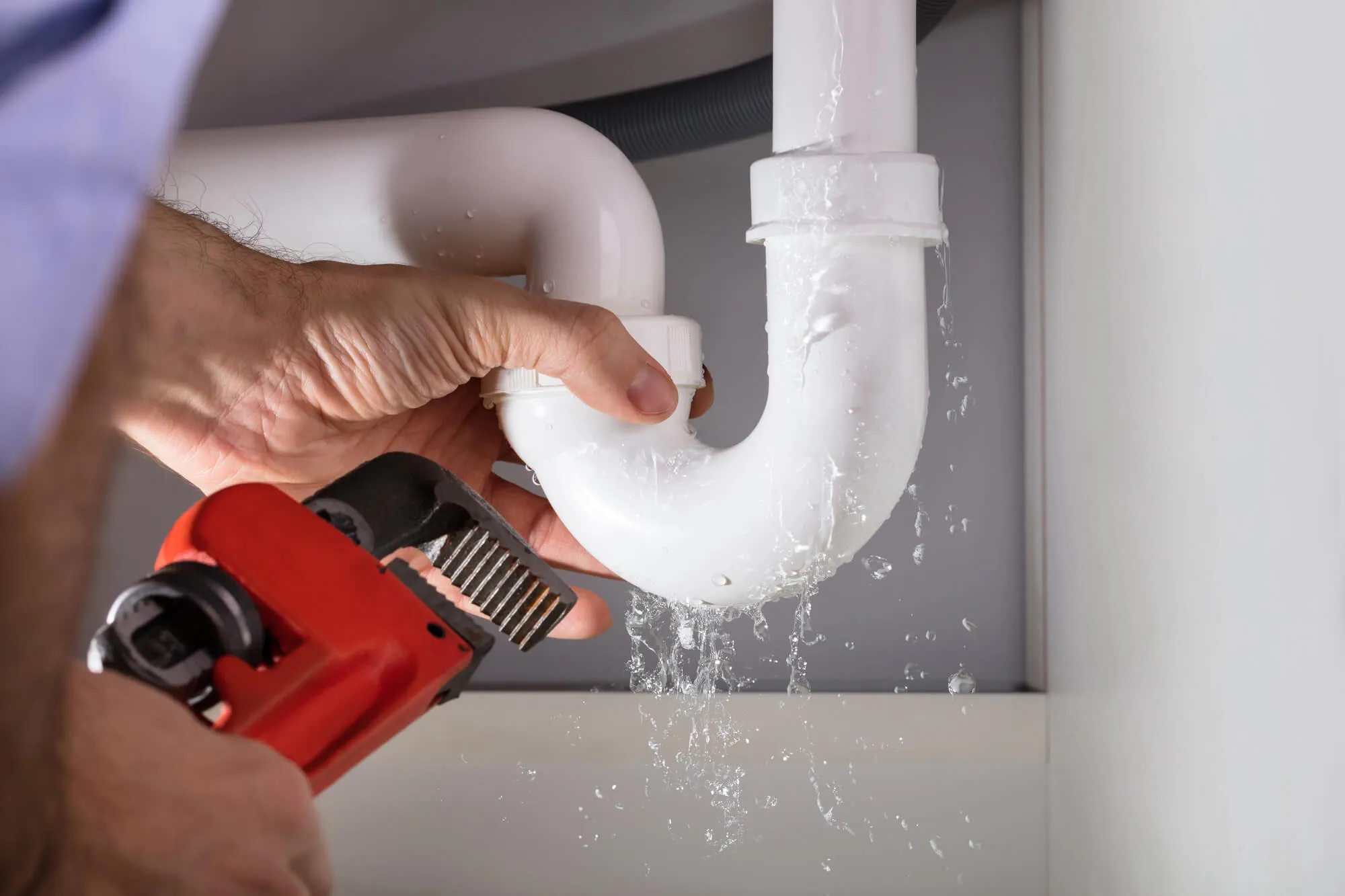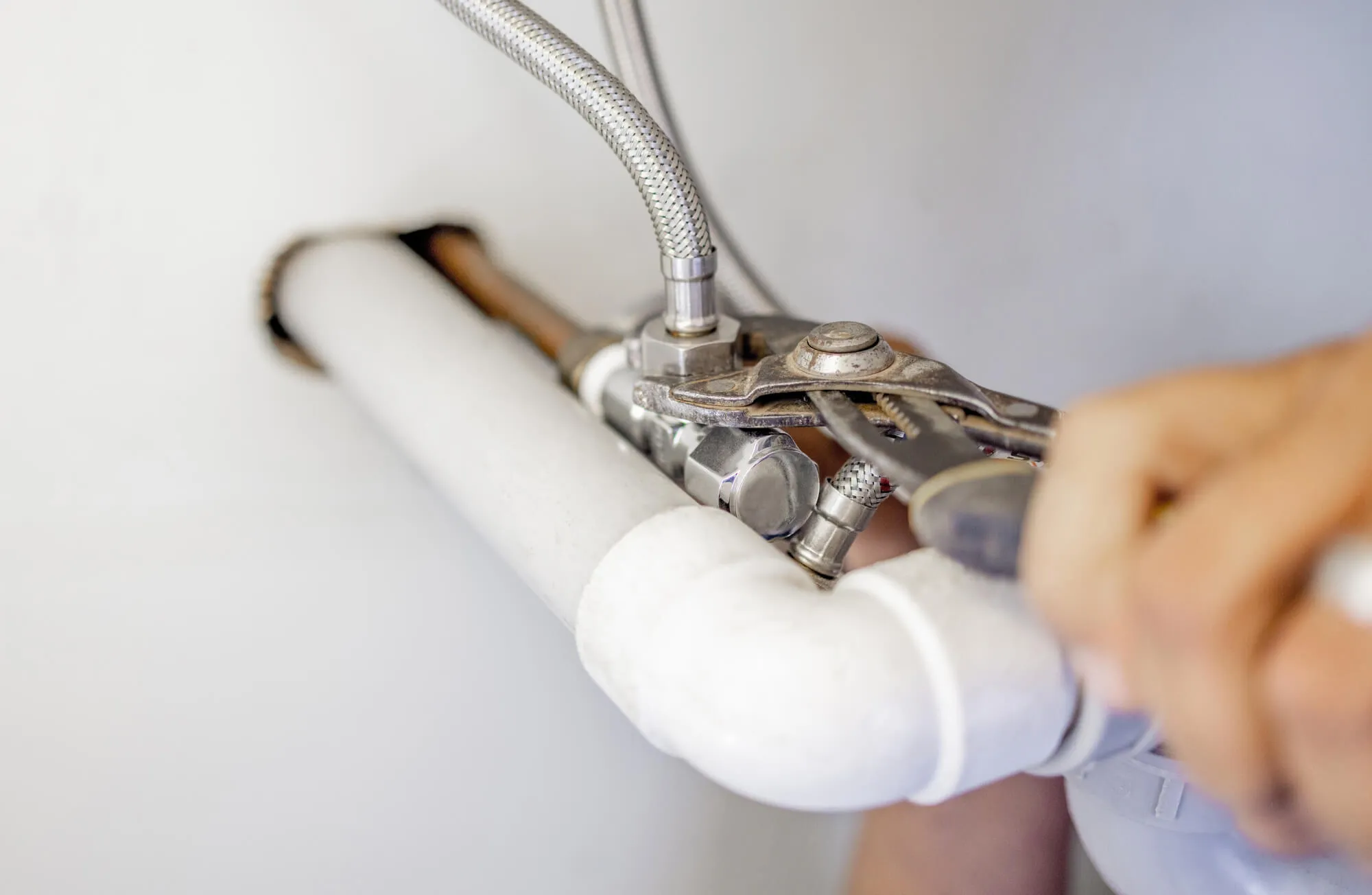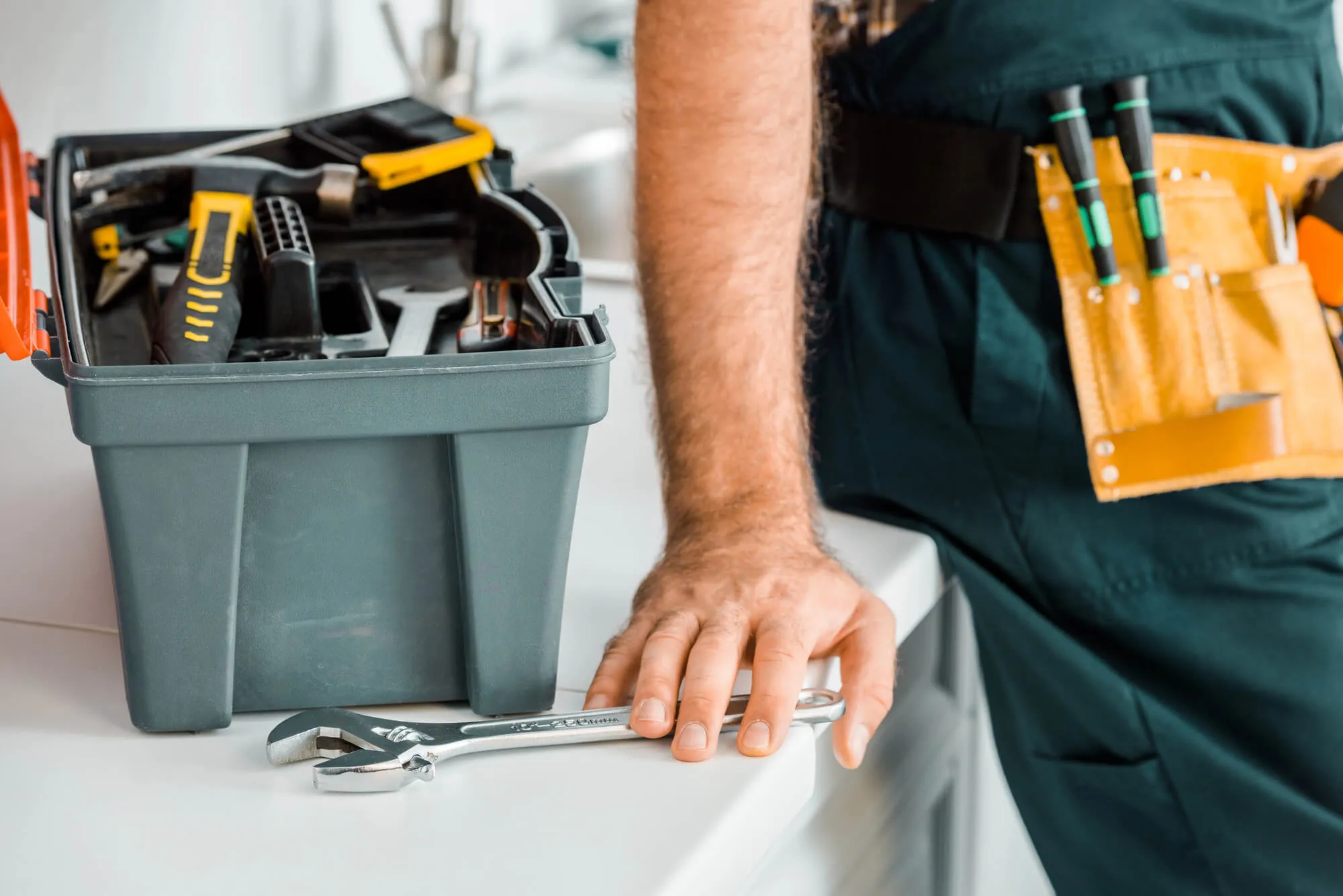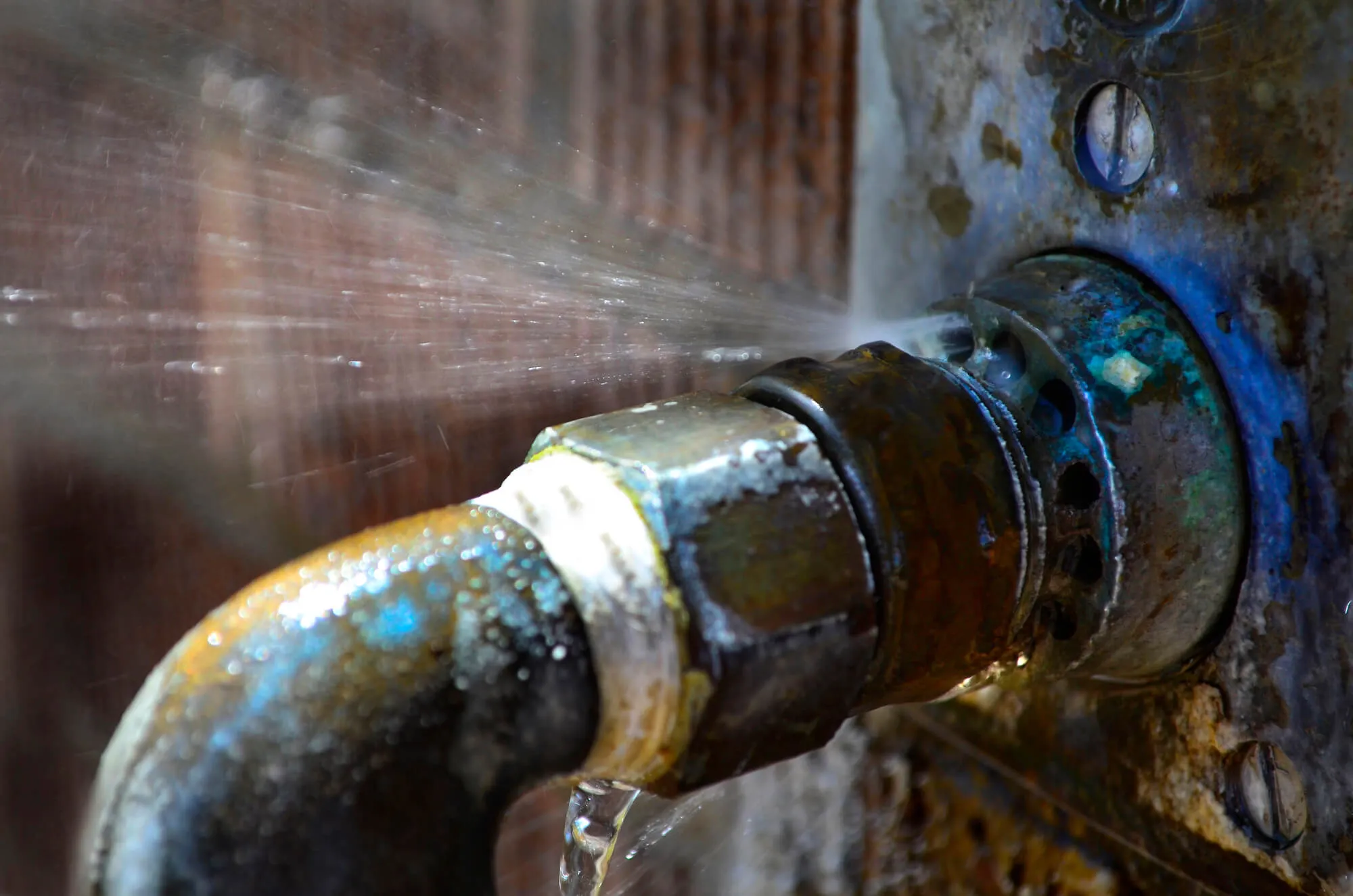Pipes are one of those things you don’t think about until something goes wrong. A small leak, rusty water, or low pressure could be your first sign that the plumbing system is starting to give out. If you've been searching for pipe repair in Phoenix, you're probably already dealing with one of these red flags. The good news? There are clear signs to watch for, and professional help is just a call away.

Signs Your Pipes May Be Wearing Out
Over time, even the strongest pipes start to show their age. While they’re designed to last for decades, no material is immune to the combined effects of corrosion, water pressure, shifting foundations, and mineral buildup.
Eventually, wear and tear catch up with the system; sometimes quietly, sometimes all at once. Knowing what to look for can help you act before a small issue becomes a major disruption.
Below are the most common signs that your plumbing pipes may be past their prime.
Low Water Pressure Throughout the House
Is your shower suddenly weak? Do your faucets take longer to fill the sink? These are classic symptoms of low water pressure. While isolated low pressure can stem from a clogged aerator or a faulty fixture, widespread pressure loss often points to something deeper in the plumbing system.
As pipes age, mineral deposits from hard water can build up inside the lines. These deposits slowly narrow the diameter of the pipe, restricting water flow and reducing pressure at every tap. In metal pipes, especially galvanized steel, internal corrosion compounds the problem, accelerating blockage and pipe decay.
Low water pressure might not feel like an emergency, but it can signal major issues forming behind the walls.
Discolored Water or Metallic Taste
If your water runs clear one day and takes on a yellow, reddish, or brown tint the next, don’t ignore it. Discolored water is usually caused by rust flaking off from the inside of aging iron or steel pipes. This is especially common if you notice the issue when you first turn on the tap in the morning.
Rust can also change the water’s appearance and give it a bitter, metallic taste. While brief exposure to rust in drinking water isn’t usually harmful, it’s a strong indication that your pipes are actively corroding. Over time, this can weaken the pipe walls and lead to leaks or complete pipe failure.
If discoloration is consistent or getting worse, it’s time to call a plumber for an inspection.
Unusual Pipe Noises
Pipes aren’t supposed to talk—but when they do, you should listen. Banging, rattling, or clanking noises inside the walls when you turn on water may point to a few different issues:
- Water hammer (a loud knocking sound when a valve shuts off)
- Loose mounting brackets that allow pipes to move when in use
- Air pockets trapped in the lines
- High water pressure causing vibrations
In many cases, these sounds come from older pipes that have shifted, corroded, or become unstable. While not every noise means your system is at risk of failure, ongoing or worsening sounds are worth investigating.
Frequent Leaks or Repairs
A small leak every few years is normal. But if your plumber is on speed dial or you’ve had to deal with multiple leaks in the last year, your system might be giving you a bigger message. Persistent leaks usually indicate pipes are deteriorating internally, whether from corrosion, age, or poor installation.
Each repair might seem manageable, but patching sections of failing pipe is often a temporary fix. Eventually, the system as a whole loses its reliability. Investing in partial or full pipe replacement can save time, money, and stress long-term.

Stains, Damp Spots, or Water Damage
Have you spotted yellow or brown stains on your ceiling? Soft spots on drywall? Damp flooring in areas with no visible leaks? These are subtle but serious signs of moisture coming from behind the scenes.
Hidden leaks are common in older piping systems. Even a slow drip behind a wall can cause mold growth, wood rot, and drywall damage over time. In extreme cases, undetected water can compromise the structure of your home or foundation.
If there’s visible damage, the leak has already been at work for some time. Calling a plumber early can prevent larger repairs.
Outdated Pipe Materials
Not all pipes are created equal, and some materials that were standard in past decades are now known to cause problems. If your home is older and hasn’t been repiped, there’s a chance your plumbing system includes one of the following:
- Galvanized steel: Common before the 1960s, these pipes corrode from the inside out, leading to rust, clogs, and poor water quality.
- Polybutylene: Used heavily in the 1980s and early ’90s, this plastic piping is prone to brittle cracking and sudden failure.
- Lead: Although lead pipes are banned in modern plumbing due to their health risks, they may still be found in very old homes.
If you’re unsure what kind of pipes your home has, a professional inspection can give you clarity. Many plumbing companies offer affordable camera inspections or water testing to help identify pipe material and overall condition.
If you’re seeing any combination of these signs, don’t wait. Aging pipes can cause far more damage than most homeowners realize. Acting early gives you more control over cost, scope, and safety.
How Long Should Pipes Last?
Knowing the typical lifespan of common piping materials can help you estimate whether your system is reaching the end of its reliable life.
Common Pipe Lifespans:
- Copper: 50–70 years
- Galvanized Steel: 20–50 years (often fails earlier)
- Brass: 40–70 years
- PVC: 25–40 years (used for drainpipes and sometimes main lines)
- PEX: 40–50 years (common in modern plumbing)
These are general ranges. Actual life depends on installation quality, water pressure, mineral content, and maintenance.
If your home’s plumbing is nearing or past these age limits, you may want to start budgeting for repair or repiping options—even if problems haven’t surfaced yet.
What Causes Pipes to Fail?
Pipe failure doesn’t usually happen without warning. It’s often the result of multiple factors working against your system over time. From internal corrosion to external pressure, understanding what leads to pipe failure can help you spot risks early and protect your home from costly repairs.
Corrosion and Mineral Buildup
Hard water is a common culprit. It contains minerals like calcium, magnesium, and iron, which gradually accumulate inside the pipes. These mineral deposits don’t just reduce water flow—they can also corrode pipe walls from the inside out. Over the years, this creates weak spots that eventually leak or burst. Metal pipes, particularly older galvanized steel, are especially prone to internal rust and scale buildup.
Water Pressure That’s Too High
High water pressure may feel great during a shower, but it’s not always safe for your plumbing. When pressure consistently exceeds recommended levels, it puts constant stress on joints and fittings. That extra strain can cause pipes to crack, shift, or even rupture.
If you’re experiencing fluctuating or consistently strong pressure, it’s worth having your system evaluated. A licensed plumber can measure your water pressure and install a regulator to bring it back into a safe range.
Shifting Soil or Foundation
Pipes don’t do well under shifting loads. Changes in the foundation or soil—due to temperature shifts, tree root growth, or settling—can pull pipes out of alignment. Over time, this movement can lead to cracks, joint failures, or complete separation in underground lines.
Poor Installation or Low-Quality Materials
Finally, poor workmanship or cheap materials can accelerate pipe failure. Pipes installed improperly, using outdated methods or budget-grade materials, are far more likely to break down prematurely.
How Professionals Inspect and Diagnose Plumbing Issues
You don’t have to tear open walls to find pipe problems. Professional plumbers use modern tools and methods to assess your system and identify issues without unnecessary disruption.
Non-Invasive Leak Detection
They use digital equipment and camera scopes to locate pipe leaks, weak points, or corrosion from the inside. This helps pinpoint exact trouble spots, saving you time, mess, and money.
Water Quality Testing
If they suspect rust, mineral buildup, or lead exposure, they can test your water directly to see what’s coming through your pipes. This helps confirm whether the material is breaking down or safe for continued use.
System Pressure Checks
Testing water pressure across multiple points in the home can reveal inconsistencies and identify whether failing pipes are reducing flow.

When Is It Time to Call for Professional Pipe Repair in Phoenix?
You don’t need to wait for a flood to start thinking about your pipes. If you’re seeing any of the signs above or even just have an older home, it’s worth calling for a professional inspection. For reliable pipe repair, Local Leaders Plumbing provides prompt, expert help with no guesswork.
We’ll help you weigh your options: whether it’s a simple repair, sectional replacement, or full repipe. We work with durable, safe, and long-lasting materials, installed by experienced technicians who know how to get the job done right—the first time.
Don’t wait until a small problem turns into a major repair. Contact us today to schedule an inspection, get a clear plan of action, and keep your home safe, dry, and stress-free.


